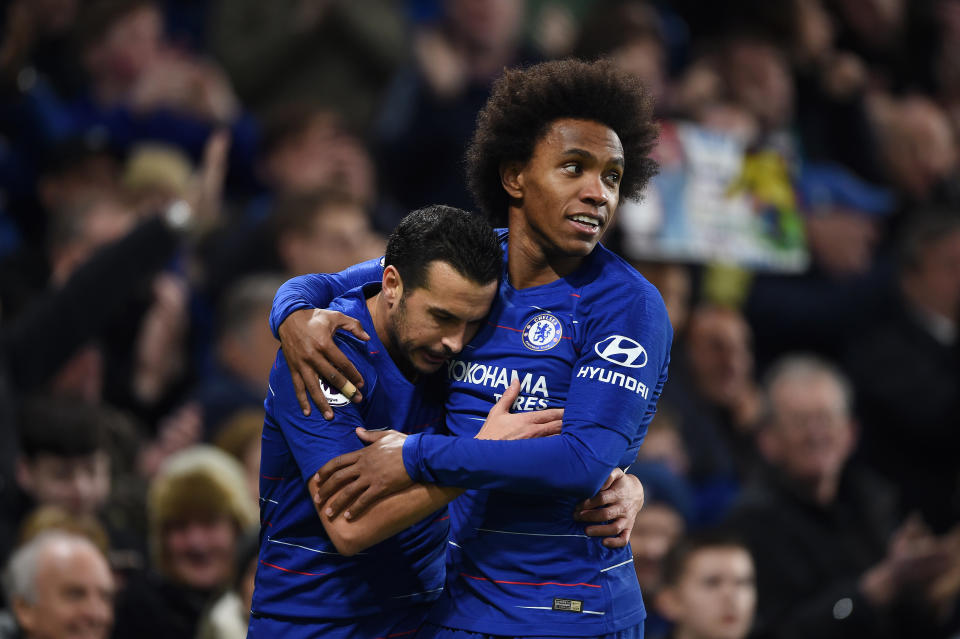The Premier League's restart is making a mess of player contracts
The world’s most popular sports league will make its long-awaited return on June 17, when relegation candidates Aston Villa take on surprise side Sheffield United at Villa Park.
However, the path toward the Premier League’s “Project Restart” is littered with stumbling blocks, most of which revolve around the coronavirus pandemic, the reason the competition went on hiatus in the first place. The British government has bungled its response, unlike Germany, which has resumed the Bundesliga almost entirely without a hitch.
The Premier League’s restart plans have also created new obstacles, one of the most significant being player contracts.
European contracts typically run until June 30, a date that usually falls between seasons. In this campaign, however, the Premier League is due to be completed on July 26, around a month after the contract expiration date.
According to Transfermarkt, there are 78 Premier League players whose contracts will expire around 13 days into the restart. Around 60 of them could be considered first-team candidates.
Some will sign short-term contracts. Others will try and negotiate longer-term deals that they don’t necessarily warrant. And others will refuse to play.
And time is running out to resolve these contract issues. All clubs have until the end of business on Tuesday to confirm any contract extensions that have been handed to players who could otherwise walk away.

As clubs scramble to shore up their squads ahead of the restart, some contract roadblocks have already arisen. West Ham right back Jeremy Ngakia, who has made four Premier League appearances this season, has refused an extension deal to his current contract that expires at the end of the month.
Such a stance may seem like a dereliction of duty, but it’s quite understandable. If a Premier League star has lined up a move to a new club, why would they risk jeopardizing that deal by picking up an injury on a short-term extension?
“Players that are out of contract in a league that’s going to now continue past the expiry of their deal will have a few things to consider as the leagues go back,” Sam Stapleton, managing Director of Roc Nation Sports International, told Yahoo Sports. “If they already have a new club in mind, then will they go back and risk an injury? Most players will continue to play, but I wouldn’t blame any who decided against it.”
This is a particular concern for players who may only have one big contract left in their careers. At 32 years old, Adam Lallana was in this boat until Tuesday, when Liverpool agreed to extend his contract to the end of the season (per the BBC). According to The Athletic, the temporary extension will have cost the Reds around $765,000. That’s a lot of cash for a team only six points away from an inevitable title.
Lallana may have ironed out his deal, but there are plenty of other players in a similar position who have not. At Chelsea, for example, both Willian and Pedro are both stalling on signing extensions — both likely in search of that final lucrative contract.
The risk of contracting a deal-halting injury is particularly high for Premier League stars, as a lack of competitive matches or full-contact training for three months will inevitably take its toll. In the first week of the Bundesliga restart, muscular injuries increased by 226% compared with season averages.
Other key players who may not see out the season for contractual reasons include Arsenal’s David Luiz and Tottenham’s Jan Vertonghen.
Burnley’s Jeff Hendrick also represents a curious case. The Clarets’ former record signing has reportedly attracted interest from Milan, but they have little to play for, since they’re most likely not going to be relegated and also not qualify for the Champions League or Europa League. Is it justified for Burnley to let him sit the restart out?
There are other cases where clubs are more impacted by players holding out. Striker Lyle Taylor, for example, has enraged fans at second-tier Charlton for refusing to play. The Addicks are in danger of relegation in the Championship, and may desperately need the firepower of their talisman to save themselves.
However, the 30-year-old, who has paid his dues and worked his way up the English soccer pyramid, claims to have at least one “life-changing” offer from a bigger team that he does not wish to jeopardize. Taylor even has the blessing of his coach, Lee Bowyer, who understands what is at stake for the man who might save his club from the drop if he stays.
Player contract issues won’t be enough to grind the restarted Premier League to a halt. After all, the affected group accounts for a little over 15% of the total players in England’s top flight.
But the situation still impacts the league’s integrity. Is it fair that Manchester City could play Burnley without Hendrick, when other Big Six teams played the Clarets with a full complement of players? It may be argued that Aston Villa’s run-in is made easier when they face a Chelsea team who might not be able to select Willian or Pedro for contractual reasons.
The Premier League restart is never going to be entirely fair, and its rationale is mainly focussed on satisfying TV broadcast deals. But in the coming days and weeks, we may see the plans of many teams go awry when contract issues go unresolved.
More from Yahoo Sports:


